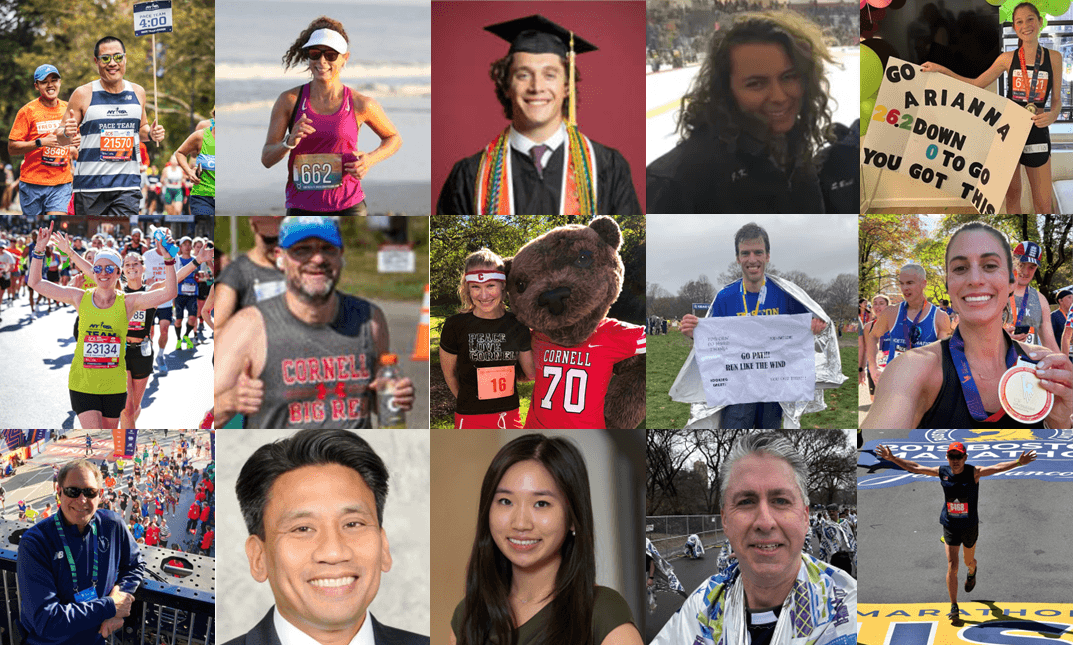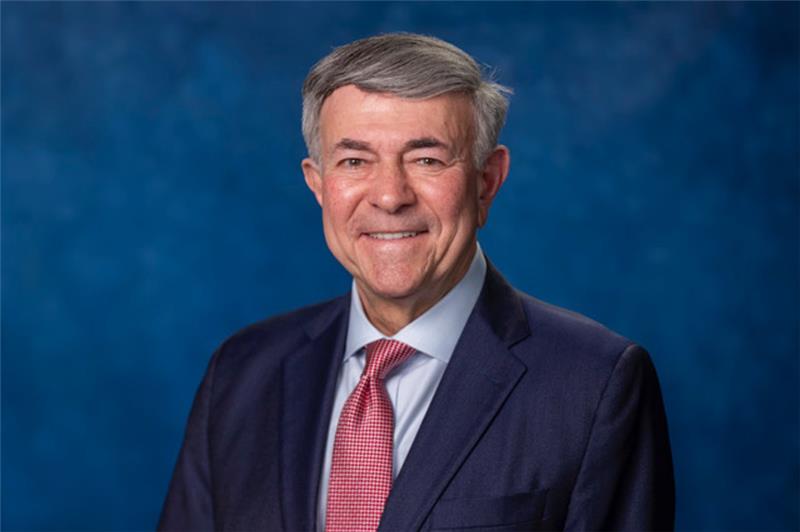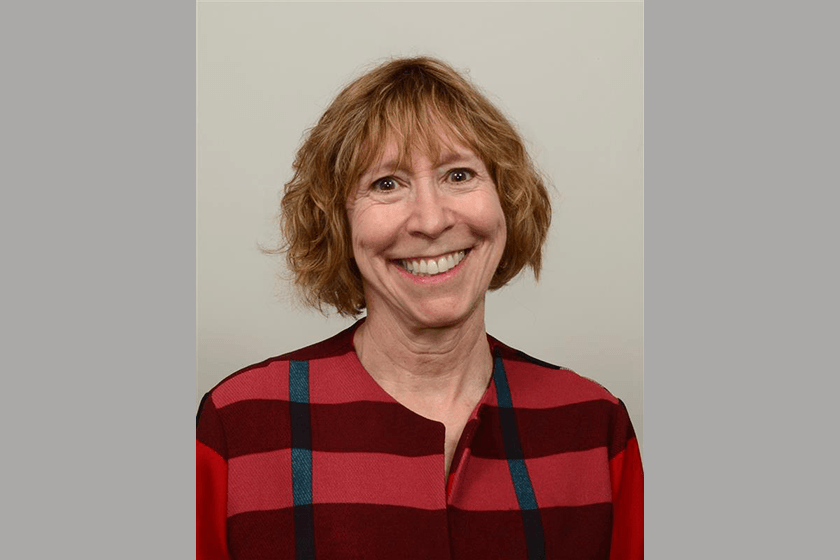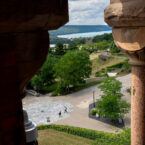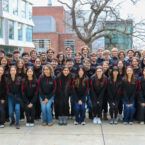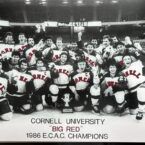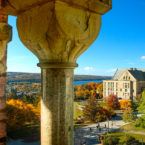“I’ve always volunteered for Cornell. I don’t remember a time I did not,” said Elisabeth Kaplan Boas ’71.
Elisabeth’s Cornell connections began long before she ever set foot on campus as a student. She grew up attending Reunion with her parents, Alan W. Kaplan ’44 and Erna Fox Kaplan ’45. In high school, she helped ghost-write a women’s alumni column for her mother and also assisted her father with paperwork for the Secondary Schools Committee—which later morphed into the Cornell Alumni Admissions Ambassador Network (CAAAN).
She was happy to pitch in, she said, because “that was the rule in our family. Everybody did what they could for the sake of the whole.”
Elisabeth took that mentality with her when she became a Cornell student. She was a resident advisor in Donlon Hall, a women-only residence at the time. She majored in anthropology and art history with a concentration in archaeology, and recalls her undergraduate experience being deeply influenced by current events.
“It was a time of great political turmoil having to do with intellectual freedom on our campus, as well as the war in Vietnam. The draft was hanging over our heads,” she said. “Cornell was a highly activated place of lots of students being very serious about what they were serious about, but also a place where people had lots and lots of fun.”
Elisabeth went on to graduate work in American decorative arts at the University of Delaware, followed by positions at the Metropolitan Museum of Art, a Rockefeller Foundation fellowship, and creating educational materials for the Girl Scouts of America, local house museums, and more. Her work eventually evolved into leading volunteers and volunteer organizations.
“I was always finding myself in charge of something. I would say yes if people asked me,” Elisabeth said. “My mother once said, ‘Oh, you know her. She has helium of the left arm, and before she realized, she’s volunteered to do something!’”
Elisabeth is currently the class correspondent for the Class of 1971, secretary for the Cornell Club of Washington, and a Cornell University Council life member. She was also on the Council committee for Student and Academic Services that helped re-envision the West Campus housing system, a member of the Johnson Museum advisory committee, and a member of the Library advisory council for many years.
Elisabeth’s dedication to Cornell is most evident from her involvement with Cornell’s Adult University—she holds the record for the most CAU courses taken by a Cornellian, having not missed a CAU summer session since 1996—except during the COVID-19 pandemic.
“You have the finest faculty who love to teach, addressing a small number of students who all do the homework, come prepared, and ask questions,” she said of the program. “That’s the excitement of CAU, isn’t it? It opens up your eyes, and undoubtedly there will be people in the class who will also be looking at this either for the first time, or in a new way.”
Her continuous learning has taken her from studying the physics of everyday things to learning geology by hiking in Ithaca’s gorges, and across the world with CAU Study Tours to Antarctica, Indonesia, Israel, Mongolia, Morocco, and Siberia. CAU Study Tours are travel experiences accompanied by Cornell faculty, with programs taught on location in destinations around the globe.
Elisabeth likes to visibly represent Cornell wherever she is in the world: she has a red car, red clothes, red shoes, and has been lovingly described as a walking, talking Cornell mascot.
“People tease me,” she said, “but then people who are a generation younger than me go, ‘Oh, I heard you went to Cornell,’” and that initial touchpoint often segues into a deeper conversation that leads to connecting other alumni with volunteer opportunities.
“There are so many ways to make a difference, to belong, to help make the university community welcoming,” Elisabeth said. “You grow, you make a difference in the world around you and in the lives of other Cornellians; you may widen their horizons; you might illustrate for them ways that they can make a difference.”
Through her decades of service, Elisabeth has developed a philosophy about volunteering that emphasizes inclusivity and meeting people where they are. She believes people can—and should—give their time, talents, or treasure in whatever measure they are able.
“Maybe one year you can take a big volunteer job, and the next year you’ve just had a baby, you have a new job. Some people can be leaders, some are just really good at filling shift hours and making the project successful. You need all of that. To do the greatest good takes us all to make a difference,” she said.

